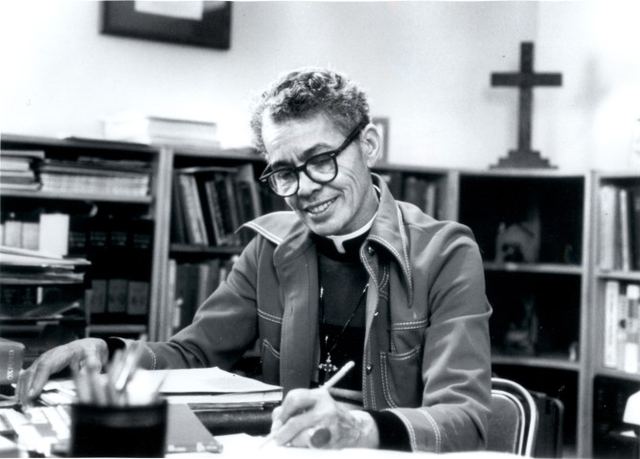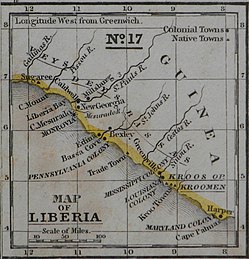Pauli Murray (1910-1985) is ordained at the Washington Cathedral as the first African American woman Episcopal priest. Murray has a successful career as a civil rights activist, legal scholar, theorist and author before becoming a priest. She has been called “ahead of her time and behind the scenes”.
Anna Pauline “Pauli” Murray is born in Baltimore but raised by two aunts in Durham, NC, after she loses both of her parents. After high school, she moves to New York City and graduates from Hunter College in 1933. She works with New Deal programs in the Great Depression, and later she and a friend are arrested for sitting in a white’s only Virginia bus in 1940. That incident sets her on a civil rights legal career and Murray graduates first in her class at Howard University Law School in 1944. When her gender prevents her from attending Harvard Law, a prejudice she calls “Jane Crow”, she breaks new ground by receiving graduate degrees from the University of California and Yale.
Murray writes a book in 1950, States’ Laws on Race and Color, that Thurgood Marshall calls the “bible” of the Civil Rights Movement.
She works with the Kennedy Administration on the status of women and co-founds the National Organization for Women in 1966. Ruth Bader Ginsburg names her as a co-author in a pioneering 1971 US Supreme Court Case, Reed v. Reed, against gender discrimination.
After teaching in Ghana, Murray becomes the first African American to receive a Doctor of Judicial Science PhD and then becomes a tenured full professor in American Studies at Brandeis University in 1971.
In her early 60’s, Murray is inspired by her Episcopal faith to leave academia and become a Master of Divinity. She is then ordained as the first African American woman priest in 1977 and serves for several years as the assistant rector at the Church of the Holy Nativity in northwest Baltimore.
Pauli Murray often identifies herself as a “he/she personality” when she was young. She seeks that role in extended relationships with women. She is identified as a woman in her many successes later in her career. One highly acclaimed memoir, Proud Shoes, written about the history of her family in 1956, is still in print.
For More Information
The Episcopal Diocese of Maryland Archives
The Episcopal Diocese of Washington Archives






